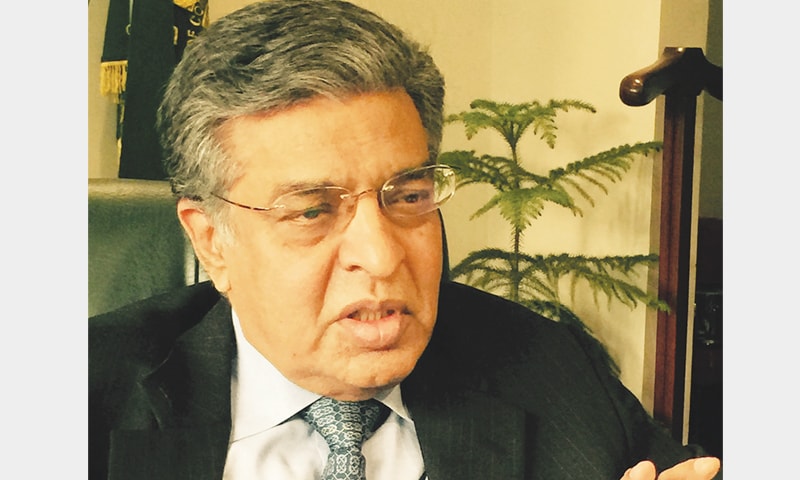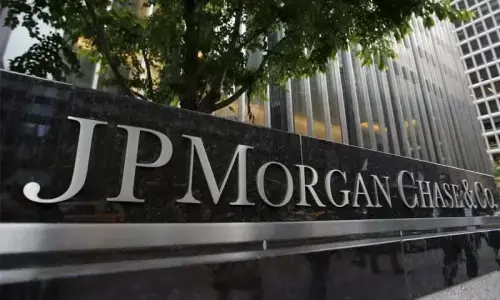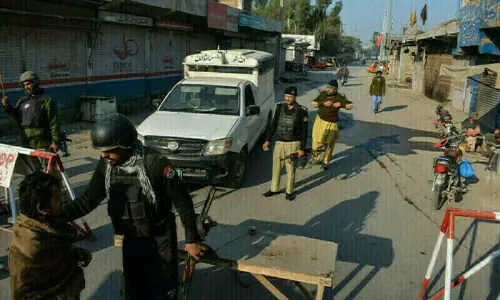EVERY business has risks; there is no way of getting around it. Businesspeople know it, and their investment plans factor in the risks that they may possibly encounter.
The problems for investors begin when intrusive government policies create unseen risks for them — risks that they have not and cannot factor into their investment plans — and when overregulation of an industry starts stifling its growth.
So when the government, about 10 years ago, fixed the price of Ijaz A. Mumtaz’s ‘self collapsible intravenous (IV) infusion’ plastic bags at Rs20 a piece — equal to the conventional, unsafe IV bags and far below his production cost — he chose to shut down one of the country’s largest IV solutions manufacturing facilities at that time.
“The manufacturing of the [collapsible] bags became economically unviable because of the government’s intervention in the market. I had a choice to either suffer massive losses or shut down the plant. I chose to close it down. If you were in my place, you would also have done so,” the chairman of the Fazal Din and Sons Group of Companies and the president of the Lahore Chamber of Commerce and Industry (LCCI) told Dawn in an interview.
“If the [pharmaceutical] industry is not given the freedom to fix its prices, the quality standards will suffer. How can any caring government not realise this, as this involves human life,” asked the soft-spoken Ijaz. He added that he had not made profits for the last five years or so because of the massive spike in the cost of doing business and the government’s refusal to raise drug prices.
With a population of over 200m, Pakistan has huge potential to attract investment in the pharmaceutical industry. But investment in this sector has remained minimal over the last several years owing to overregulation and the government’s control over drug prices. Local manufacturers hold a three-fifth share in the $2.3bn industry, which meets four-fifths of the country’s medicine requirements. The country’s pharmaceutical exports total nearly $200m, against India’s $15.5bn.
‘Unfortunately, the emphasis of government regulations is not on improving quality, but controlling prices. This has depressed investment in the pharma sector and adversely affected quality standards’
“If Pakistan has not been able to realise its potential and increase its pharmaceutical exports, it is because of overregulation of the industry. Unfortunately, the emphasis of government regulations is not on improving quality, but controlling prices. This has depressed investment in this sector and adversely affected quality standards,” Ijaz argued.
He believed that if the government did not want to give up its control over drug prices, it should at least follow the law in this regard. “Instead of fixing the prices of the end product (brand), the government must restrict itself to fixing the price of the molecules. The price of the brand or product should be left to the market to determine.”
Regionally, Bangladesh fixes the prices of 119 molecules and India 345 molecules. In Pakistan, all 1,400 molecules and over 79,000 registered products are individually price-controlled.
The last time the government allowed inflationary price adjustment to the manufacturers was in 2001. Ever since, no price increase was allowed except in certain ‘hardship’ cases, even though the cost of production rose by an average 20pc.
In 2013, the government calculated that the industry should receive a price adjustment of 94pc, but only an interim relief of 15pc on a few select products was granted, with the promise that the balance will be addressed through a fair and transparent policy. Even that price adjustment was withdrawn a few hours after it was announced. Ijaz said the cost of drugs constituted only 10-12pc of the total treatment cost of a patient.
Ijaz’s family has been in the healthcare business since 1951, when his father — a large supplier of food items like vegetables, milk, meat etc to the British army before independence — was allotted a chemist’s shop in the Sir Ganga Ram building on The Mall in Lahore to compensate for the property he had left behind in Dalhousie, India, after partition.
From that small shop grew a trusted brand in the healthcare industry, Fazal Din and Sons, and two modern drug manufacturing units in Lahore. The group, dealing in disposables to surgical instruments to implants to hospital equipment to medical imaging devices, represents a large number of multinational pharmaceutical firms across the world.
“It was easier to set up a manufacturing facility and expand your business in those days; the government would provide every help [in setting up a manufacturing plant or a factory],” said Ijaz, who joined his father’s business in the early 1960s. Nowadays, the LCCI president pointed out, the establishment of a drug manufacturing plant requires massive investment. “Besides, you have to deal with an unsympathetic bureaucracy.”
The conditions for investment in the country have deteriorated over time. Even the return of what many thought to be a business-friendly government hasn’t improved the situation.
“Nothing has changed. Political instability, energy shortages, terrorism, taxation policies and regressive government regulations are still stalling investment in manufacturing. I’m not saying no investment is being made at all, but the quantity of investment we require to create jobs and turn around the economy is not coming in any segment,” he concluded.
Published in Dawn, Economic & Business, February 2nd, 2015
On a mobile phone? Get the Dawn Mobile App: Apple Store | Google Play


































